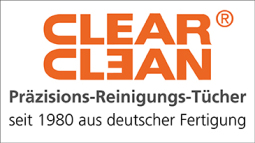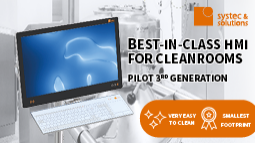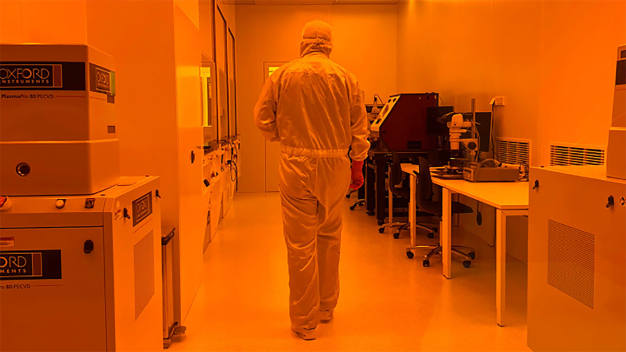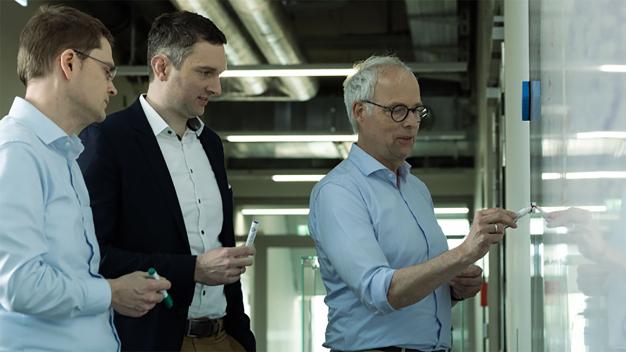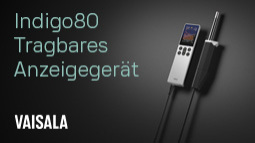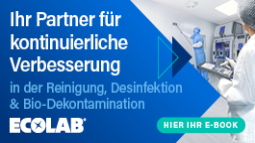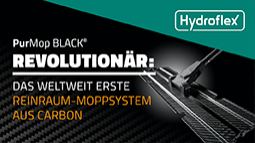- Science
Future cluster QSens starts the second round of funding
In the “Cluster4Future” QSens of the Universities of Stuttgart and Ulm, scientists, companies and start-ups are researching quantum sensors with a wide range of potential applications. The Federal Ministry of Education and Research is funding QSens for a further three years as part of “Clusters4Future”.
High-precision and powerful quantum sensors are needed in many areas, including medical technology, navigation systems in autonomous vehicles, energy storage in batteries, and intelligent production processes. “Among quantum technologies, quantum sensors are currently the furthest on the way to market maturity and offer great application potential that we want to tap into with QSens,” says Prof. Jens Anders, Cluster Spokesperson and Head of the Institute of Smart Sensors (IIS) at the University of Stuttgart. The researchers and industry partners working together in the Cluster4Future “Quantum Sensors of the Future” (QSens) develop the technology for practical use further, make it usable for autonomous technical systems, and transfer it from research to industrial application. Numerous patents and QSens research demonstrators, which were shown at international trade fairs such as the “Hannover Messe” trade fair and the Quantum Effects trade fair in Stuttgart show how QSens research is to the market.
Innovation ecosystem and wide range of applications
In the first round of funding, the participants established an “innovation ecosystem” of research institutes, large companies, SMEs and start-ups. It is intended to serve as a springboard for disruptive technologies and strengthen the innovative capacity of Germany. In the second round of funding, this ecosystem will be further strengthened and expanded. After addressing a broad range of topics in the first phase of implementation – from industrial sensors to sensors for (bio)medical technology to sensors for applications in space – the cluster will focus on sensors for biomedical technology in the second phase. Research will include quantum sensors to control intelligent prostheses and measure biomarkers for the early detection of diseases or per- and polyfluoroalkyl substances (PFAS). These forever chemicals are potentially harmful to health and occur in many products.
New quantum platform for SMEs
In order to further strengthen and expand the QSens ecosystem, an association that interested industrial partners can join will be founded in the second phase. In addition, the QSens platform Quantum 4SME will be expanded. On the one hand, QSens will enabele partners without a clean room to manufacture quantum devices. On the other hand, it aims to provide SMEs with access to state-of-the-art machines and processes for the scalable and thus cost-effective integration of quantum devices into sensor modules. This will set the course for the third implementation phase in which the first QSens products are to reach the market and enable the cluster to be consolidated in the long term beyond BMBF funding. Through close cooperation with the Institute of Entrepreneurship and Innovation Science (ENI) at the University of Stuttgart, QSens is focusing even more on the topics of spin-offs and intellectual property.
The Cluster4Future QSens
The Cluster4Future “Quantum Sensors of the Future” (QSens) of the Universities of Stuttgart and Ulm received approximately EUR 15 million from the Federal Ministry of Education and Research (BMBF) in the first round of funding from 2021 to 2024 as part of the “Clusters4Future” competition. In the second round of funding, the BMBF will provide the cluster with up to an addition EUR 15 million. Under the coordination of the University of Stuttgart, alongside the University of Ulm, the University of Tübingen, three research transfer organizations, and 17 partners from industry and the biotechnology and pharmaceutical sectors are participating in QSens. QSens is an important cornerstone of a growing regional quantum ecosystem, which includes the Center for Integrated Quantum Science and Technology (IQST), the Baden-Wuerttemberg initiative QuantumBW, and the Stuttgart Center for Applied Quantum Research (ZAQuant).
About the Clusters4Future competition
With the “Clusters4Future” competition, which was launched in 2019, the BMBF aims to strengthen knowledge and technology transfer, generate new added value, and expand the position of Germany as one of the world’s innovation leaders. Regional innovation clusters such as QSens intended to find solutions to urgent social challenges and promote an open innovation culture. The first round of competition in 2019 resulted in seven successful cluster outlines out of 137. Five of them, including QSens, will now be funded for another three years. In 2022, a further seven clusters were approved in the second round of competition. There are currently 14 future clusters that can go through a maximum of three implementation phases of up to three years each. Funding of up to EUR 5 million per cluster per year is planned.
Universität Stuttgart
70174 Stuttgart
Germany
